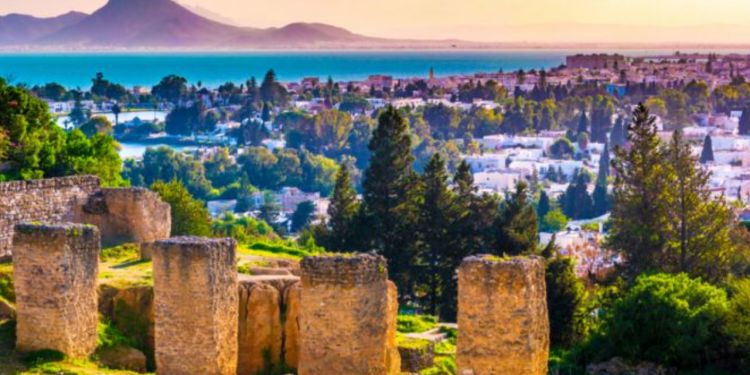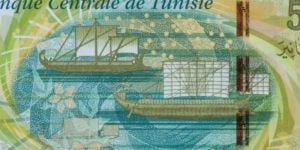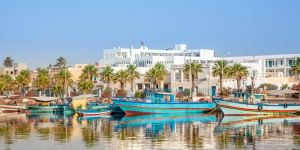
Sun, a relaxed lifestyle, traditional souks, incense, modernism, an effective health system, etc. All these are awaiting you if you are planning to retire in Tunisia. Indeed, the country has been attracting foreign retirees from around the world for many years. There are of course some conditions to be met and formalities to complete if you are planning to move there but these should not be too complicated.
Why retire in Tunisia?
Tunisia may not be the most obvious destination for retirement, especially when compared to the more popular Thailand, Spain, or Turkey. However, its popularity is on the rise — especially among those looking for something off the beaten retirement track.
Here are just a few things that you might like about retiring in Tunisia.
Tunisia has a warm Mediterranean climate with mild winters and hot, dry summers, and no marked seasons in between. This makes everyday life there very comfortable. And if you choose to settle in coastal areas, you will be able to enjoy a relaxing sea breeze all year round.
The health benefits of retiring in Tunisia don't stop here. Tunisia is a great destination for thalassotherapy (from the Greek word “Thalassa”, which means sea or ocean). This type of therapy is focused on the use of seawater and salty ocean climate to improve overall health and well-being.
The cost of living in Tunisia is not high at all — when compared to European standards. Common expenses for the average person per month add up just above $300-$500 (rent excluded) — this, of course, depends strongly on your lifestyle.
If you are looking into purchasing real estate in Tunisia, you will also have more options within your budget compared to most European cities. Foreigners can purchase property in Tunisia — though a few restrictions apply. You will also be able to use property in Tunisia as an investment, especially if you purchase housing in areas popular with tourists.
You will also have many leisure options in Tunisia, from exploring the country's French heritage to learning about the local culture, enjoying the Mediterranean, discovering Tunisian cuisine, and more.
How to retire in Tunisia?
Retiring to Tunisia is definitely exciting. But there are also some formalities that you will need to look into before making any long-term plans.
The first thing you will need to consider is your visa options for living in Tunisia long-term. Depending on your passport, you may or may not be able to enter Tunisia visa-free. To check whether or not you need a visa to Tunisia, inquire at your local Tunisian embassy or consulate.
If you don't need a visa to Tunisia, you may be able to stay in the country visa-free for up to 30 days or 90 days (depending on your passport). However, if you plan to stay in the country longer, you will need to apply for a Carte de Sejour (or residence permit).
To apply for a residence permit in Tunisia, you will need a valid reason for staying in the country. These valid reasons may be work, purchase of property, medical treatment, and, in some cases, retirement. Your options for getting temporary residence for retirement may depend on your country of origin. So, once again, we encourage you to check with your local Tunisian embassy or consulate about available options.
If you can apply for residency based on retirement, you will typically need to provide the following:
- a lease contract
- a copy of your passport
- two passport-size identity photos (it is best to get these done in Tunisia according to local standards)
- 2 tax stamps (costing 10 dinars each)
- proof of regular deposits on your Tunisian bank account.
Note that these documents have to be certified in Tunisia.
You are advised to open a dinar account in a Tunisian bank. Moreover, it is best to keep your bank account in your home country open so that you can make bank transfers. A minimum bank transfer of 400 euros per month is required.
Note that after living in Tunisia for five years as a temporary resident, you will be able to apply for permanent residency.
Taxes for retired expats in Tunisia
Make sure to inquire whether your home country has signed any tax agreement with Tunisia. You can thus be entitled to non-double taxation. In some cases, expatriates are entitled to reductions or allowances on their taxable income.
Important:
Laws and agreements with Tunisia generally vary from one country to another. Therefore, it is best to inquire about these with legal authorities in your country before planning your retirement, especially in terms of pensions, health care and taxation.
Healthcare for retired expats in Tunisia
Another important thing to take into account when planning your retirement in Tunisia is healthcare.
If you are protected by the social security system in your country, it will not be valid once you arrive in Tunisia. So, you will need to consider your healthcare options in the country.
Note that Tunisia has many qualified and competent doctors as many of them have been trained abroad. In fact, medical tourism is quite common in the country.
With that, the public healthcare sector may not be quite what you are used to in your home country. If you go to state hospitals, you need to be prepared for long waiting times and conditions that may be less comfortable than what you are used to. While public hospitals in Tunisia are generally well equipped, your experience will typically be better in a private hospital.
There are a lot of private hospitals in Tunisia. And the majority of expats residing in Tunisia do prefer to use private healthcare facilities rather than public hospitals. The wait times at private hospitals are shorter and you will have access to a wider selection of doctors.
Another important thing to note is that you may find substantial discrepancies between the leaves of healthcare in big cities and urban areas.
Important:
Note that in a lot of hospitals in Tunisia, you will be asked to pay for your treatment in advance. This will be the case even if you have health insurance. Make sure to keep all the receipts the hospital gives you for your treatments so that you can seek reimbursement from your insurance company later.
Health insurance for retired expats in Tunisia
One of the most important things that you will need to arrange for your stay in Tunisia is health insurance. With a valid health insurance plan, you will be able to receive treatment in both public and private hospitals in Tunisia.
Expats are typically advised to seek treatment in a private hospital and, preferably, in a large developed city. Plus, as travelers and expats are often asked to pay for their treatments in advance, it is advisable that you have private health insurance.
Purchasing international health insurance may be the best way to go as it will cover you not only during your stay in the country but also throughout your travels.
International healthcare policies tend to be better at taking into account the specific needs that expats in Tunisia might have. Having an international policy will make managing healthcare issues in Tunisia easier and will provide you with access to English- speaking medical personnel.
What's more, with some providers, you will be able to benefit from the waiver of advance payments in parent establishments, which you would be required to make otherwise.
Important:
if you are a resident in Tunisia, having an international medical policy won't exempt you from the requirement to join Caisse Nationale d'Assurance Maladie (CNAM) and make regular contributions.
Accommodation for retired expats in Tunisia
There are lots of accommodation options to choose from in Tunisia. You will be able to choose from standard apartments, standalone villas, townhouses and more. Rent prices in Tunisia are substantially lower than in most of Europe. Because of this, you may be able to rent a more comfortable space for your retirement in Tunisia than you would have been able to do in your home country.
Good to know:
There are retirement facilities in Tunisia, but their availability is quite limited. Most such facilities are only found in large cities. If you are looking for a comfortable stay, you should look into private retirement homes. However, you probably won't find too many expat retirees there and communication may be a problem if you don't speak Arabic or French.
Which are the best areas to retire in Tunisia?
There are lots of options to consider here.
If you want to settle in the largest city in the country, with a rich history and lots of amenities at your fingertips, you should consider the capital city of Tunis. It's just the right balance between busy and laid-back and well-connected to other cities in Europe.
The second largest city in Tunisia is Sfax. It's one of the country's major commercial centers. It may not be a popular beach destination like some other cities in Tunisia, but there are lots to do and see in Sfax. The city is home to a Medina that is a UNESCO World Heritage Site and is located just a short ferry ride away from the stunning Kerkennah Islands.
The third largest city in Tunisia is Sousse. The city is a resort destination, which is particularly popular with Europeans. Nicknamed the Pearl of the Sahel, Sousse is known for its beautiful beaches and historical attractions. Living here offers all the amenities of a big city and the comfort of a relaxed seaside town.
Other popular destinations in Tunisia include Hammamet, Dougga, Sidi Bou Said, Carthage and others.
As you can see, there are lots of benefits that come with retiring in Tunisia: from beautiful scenery to the low cost of living. To make an informed decision regarding your retirement plans, consider your visa options, healthcare, insurance, accommodation and potential expenses.
Cost of living for expat retirees in Tunisia
Living costs in Tunisia are substantially lower than in most European countries. Naturally, how much you spend will strongly depend on your lifestyle. You can check the average rent prices in Tunisia in our Accommodation in Tunisia article. But let's look at the daily costs you may be looking at besides of rent.
You can get a meal at an inexpensive local restaurant from about $2 to $5. A three-course meal in a mid-range restaurant for two people would cost in the range of $20 or higher. You can typically get a cup of coffee for under $1, and a liter of milk costs under 50 cents at a local supermarket.
The amount of money you will need to pay in utility bills depends on where you live and the size of your apartment or house. A typical utility bill for an 85-square meter apartment, including water, gas, electricity, garbage disposal, heating and cooling, is about $50 per month. Regarding phones and internet in Tunisia, prices vary depending on your package and your provider. You should set aside around $20 per month for an internet connection with unlimited data. The average price of one gigabyte of mobile internet is about $1. As in most countries, international mobile plans and international calls and messages are very expensive in Tunisia. This is why the best way to stay in touch with friends and family would be by using messenger apps like WhatsApp or Skype.
Other expenses you will need to consider are medical costs and health insurance. It's strongly advised that you purchase private health insurance in Tunisia, which will give you access to the best hospitals in the country. Overall, the cost of medical care in Tunisia is cheaper than in Western Europe. For example, you will pay around $10-$15 for a visit to a general practitioner in a private hospital and about double that amount to see a specialist doctor. Prices for medication vary, but imported medicine is much more expensive than local equivalents.
We do our best to provide accurate and up to date information. However, if you have noticed any inaccuracies in this article, please let us know in the comments section below.












Comments
1In January 2023 I was told at the police station that for a Carte de sejour as a retiree I would need to show proof of deposits of 1,000Euro per month (£865). I said this seemed rather a lot but the man insisted this was the minimum. Is this correct.